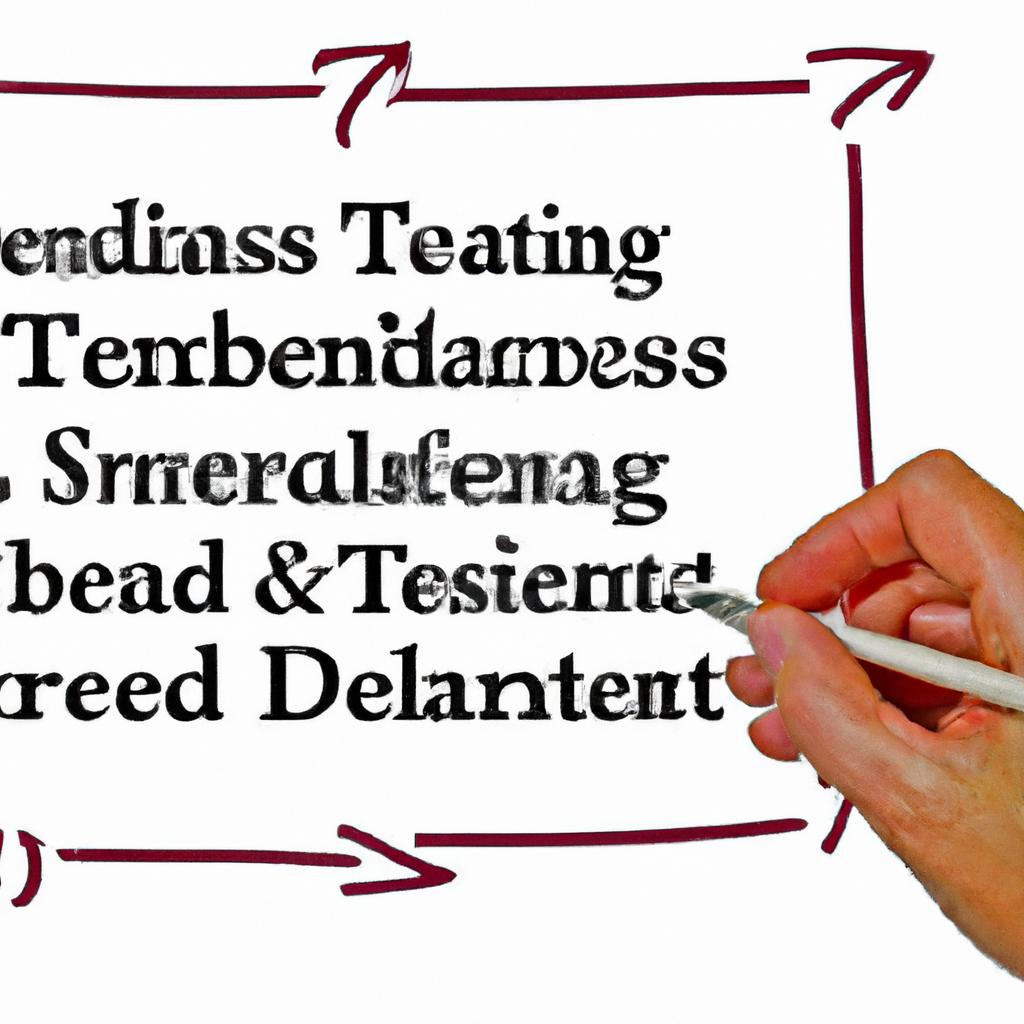In the intricate tapestry of estate planning, the charitable remainder trust can serve as a vital tool in achieving both philanthropic goals and financial security. As experienced practitioners at Morgan Legal Group in New York City, we understand the nuances and complexities of setting up such a trust to ensure its success for both beneficiaries and charitable causes. Join us as we unravel the intricacies of establishing a charitable remainder trust and explore the benefits it can bring to your legacy.
Understanding Charitable Remainder Trusts and Their Benefits
When it comes to estate planning, setting up a charitable remainder trust can be a wise decision for individuals looking to benefit both their loved ones and charitable organizations. A charitable remainder trust allows a donor to transfer assets to a trust, receive income from that trust for a specified period, and then have the remaining assets transferred to a designated charity upon the donor’s passing. This type of trust offers several benefits, including:
- Tax Advantages: By transferring assets to a charitable remainder trust, donors can potentially receive a charitable income tax deduction and avoid capital gains taxes on appreciated assets.
- Income Stream: Donors can receive a steady income stream from the trust for either a set number of years or for the rest of their lives, providing financial security for themselves and their loved ones.
- Philanthropic Impact: By designating a charity as the ultimate beneficiary of the trust, donors can leave a lasting legacy and support causes that are important to them.
In addition to these benefits, setting up a charitable remainder trust can also help donors reduce their estate tax liability and protect their assets from creditors. By working with an experienced estate planning attorney, individuals can ensure that their charitable remainder trust is structured in a way that aligns with their goals and provides maximum benefits for both their beneficiaries and the charitable organizations they wish to support.

Key Components of Setting Up a Charitable Remainder Trust
In order to successfully set up a charitable remainder trust, there are several key components to consider. These components are essential in ensuring that the trust functions effectively and achieves its intended purpose:
- Donor: The individual or individuals who create the charitable remainder trust and transfer assets into the trust.
- Trustee: The person or institution responsible for managing the trust assets and distributing income to the designated beneficiaries.
- Beneficiaries: The individuals or organizations that will receive income from the trust either for a specified period of time or for the rest of their lives.
- Charitable organization: The designated charity or charities that will receive the remaining trust assets once the trust terminates.
Additionally, it is important to establish the terms of the trust, including the distribution of income, the length of time the trust will exist, and any specific provisions for the management of assets. Proper documentation and legal compliance are also crucial in setting up a charitable remainder trust to ensure that the trust is valid and legally binding. Consulting with an experienced estate planning attorney can help navigate through the complexities of establishing a charitable remainder trust and ensure that all necessary components are in place.

Considerations for Choosing the Right Charitable Beneficiary
When setting up a charitable remainder trust, it is crucial to carefully consider the right charitable beneficiary. This decision should not be taken lightly, as it will have long-lasting implications for both the trust and the charitable organization. Here are some key considerations to keep in mind when choosing the right charitable beneficiary:
**Factors to consider:**
- Mission and values: ensure that the charitable beneficiary’s mission aligns with your own values and goals.
– Financial stability: assess the financial stability and track record of the charitable organization.
– Impact: consider the impact that your donation will have on the charitable beneficiary’s programs and beneficiaries.
– Reputation: research the reputation and standing of the charitable organization within the community.
– Transparency: choose a charity that is transparent about its operations and financials.

Navigating Tax Implications and Legalities of a Charitable Remainder Trust
Making decisions about your estate and legacy can be complex and nuanced, especially when considering the tax implications and legalities of setting up a charitable remainder trust. A charitable remainder trust allows you to donate assets to a charity while retaining an income stream for yourself or your beneficiaries. This type of trust can provide tax benefits and support a cause you care about, but navigating the legalities requires careful planning and attention to detail.
When setting up a charitable remainder trust, it’s essential to consider the following key factors:
- Choosing the right charity: Selecting a reputable and qualified charity is crucial to ensuring that your trust will meet legal requirements and benefit a cause you believe in.
- Understanding tax implications: Consult with a tax professional to fully grasp the tax consequences of funding a charitable remainder trust, including income tax deductions and potential estate tax savings.
| Factor | Consideration |
|---|---|
| Asset Donation | Ensure that the assets you donate to the trust are properly valued and transferred to maximize tax benefits. |
| Income Stream | Determine the duration and amount of the income stream for yourself or beneficiaries to align with your financial goals. |
Q&A
Q: What is a charitable remainder trust?
A: A charitable remainder trust is a type of irrevocable trust that allows you to donate assets to a charity while retaining an income stream for yourself or your beneficiaries.
Q: How does a charitable remainder trust work?
A: When you set up a charitable remainder trust, you transfer assets such as cash, real estate, or securities to the trust. The trust then pays you or your chosen beneficiaries a regular income for a specified period of time or for the rest of your life. After the trust term ends, the remaining assets are donated to the designated charity.
Q: What are the benefits of setting up a charitable remainder trust?
A: Setting up a charitable remainder trust can provide you with a tax deduction for your charitable donation, as well as potential income tax savings. Additionally, you can receive a steady income stream during your lifetime while supporting a cause you care about.
Q: Who can benefit from setting up a charitable remainder trust?
A: Individuals with appreciated assets, such as stocks or real estate, may benefit from setting up a charitable remainder trust to avoid capital gains taxes. Additionally, those looking to support charities while receiving income during their lifetime may find a charitable remainder trust to be a valuable estate planning tool.
Q: How do I set up a charitable remainder trust?
A: To set up a charitable remainder trust, you will need to work with a qualified estate planning attorney or financial advisor to draft a trust agreement that meets your specific needs and goals. The trust agreement will outline the terms of the trust, including the designated charity, income beneficiaries, and distribution schedule.
Insights and Conclusions
As you embark on the journey of setting up a charitable remainder trust, remember that the impact of your generosity will ripple far beyond your lifetime. By carefully planning for the future, you are shaping a better world for generations to come. With your charitable remainder trust in place, you can feel confident that your legacy of giving will leave a lasting impression on those in need. So go forth with compassion and purpose, knowing that your actions today will make a difference tomorrow. Thank you for choosing to make a meaningful impact through philanthropy and for your commitment to making the world a brighter place.

